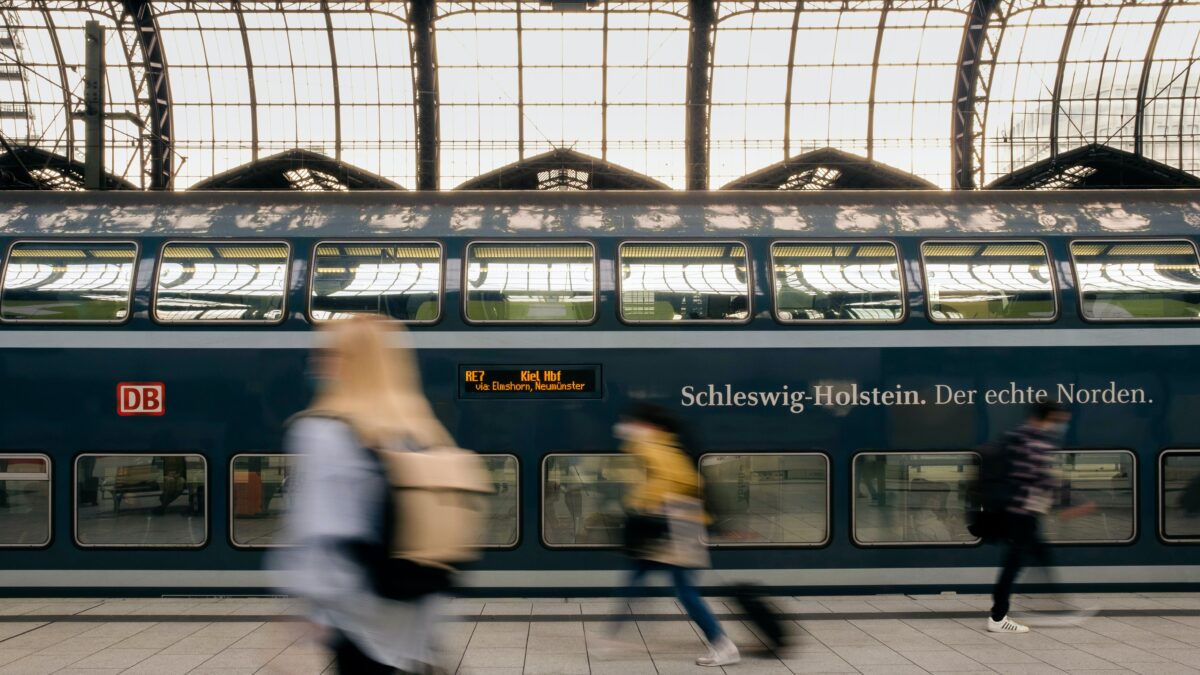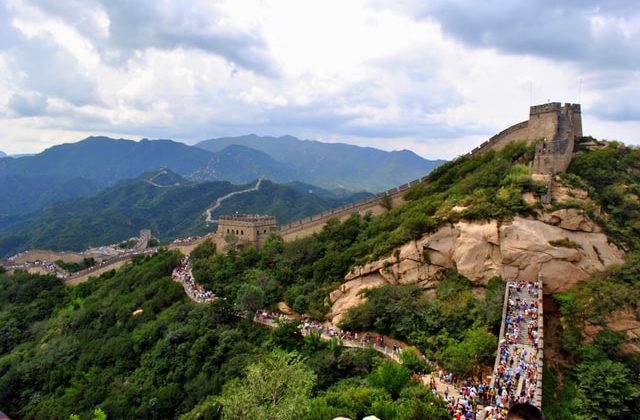Sheria Mpya za Reli za EU: Ulinzi Bora kwa Abiria
(Ilisasishwa Mwisho: 11/08/2023)
Je, wewe ni shabiki wa treni au mtu ambaye anapenda kuchunguza maeneo mapya kwa kutumia reli? Vizuri, tuna habari za kusisimua kwa ajili yako! Umoja wa Ulaya (Marekani) hivi karibuni imezindua kanuni za kina za kuimarisha usafiri wa reli. Sheria hizi mpya zinatanguliza ulinzi bora kwa abiria, kuhakikisha usafiri laini na wa kufurahisha zaidi kwa wote. hatimaye, katika makala hii, tutachunguza maelezo ya kanuni mpya za reli za Umoja wa Ulaya na jinsi zitakavyoathiri vyema safari zako za treni.
-
Usafiri wa Reli Je Eco-kirafiki njia ya Usafiri. Nakala hii inaelimisha kuhusu Usafiri wa Treni kwa Hifadhi Treni, The Tovuti ya Tikiti za Bei Nafuu zaidi Katika dunia.
Kuelewa Kanuni Mpya za Reli za EU
Kwa kuanzia, hebu tupate ufahamu bora wa kanuni mpya za reli za Umoja wa Ulaya. EU ilitengeneza kanuni hizi kuimarisha abiria wa reli’ haki na kukuza uzoefu wa kusafiri bila mshono. Sheria zinahusu masuala mbalimbali ya usafiri wa reli, kuanzia haki za abiria na ufikiaji hadi kushiriki data kati ya waendeshaji wa reli. hivyo, kwa kutekeleza kanuni hizi, EU inalenga kuinua ubora na ufanisi wa jumla wa usafiri wa reli, na kusababisha ushindi kwa wasafiri wote.
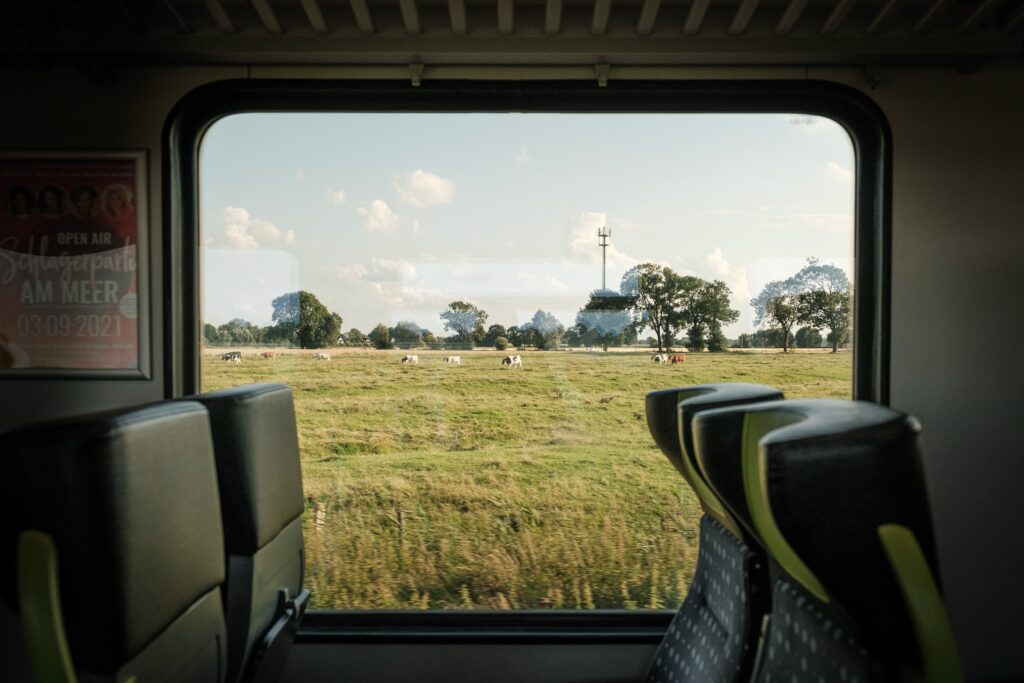
Lazimisha Sera ya Fidia ya Majeure
Awali, wasafiri wa treni huko Uropa wanaweza kudai fidia ya pesa inayofikia 25% ya bei ya tikiti kwa kuchelewa kwa treni ya zaidi ya saa moja na 50% kwa ucheleweshaji wa zaidi ya 2 saa. sasa, makampuni yataondolewa kwenye malipo haya ikiwa sababu ya kuchelewa ni nguvu majeure. Hii inajumuisha kila kitu ambacho waendeshaji wa reli hawawezi kudhibiti - kwa mfano, dhoruba, mafuriko, matetemeko ya ardhi, mashambulizi ya kigaidi, magonjwa ya milipuko, Nakadhalika. Ikiwa kampuni haiwezi kuzuia kuchelewa kwa treni au kughairiwa chini ya hali za kipekee, abiria wasitarajie kulipwa fidia 50% au 25%. Hata hivyo, kampuni lazima bado zielekeze abiria kwenye treni zingine au kurejesha tikiti ikiwa safari haiwezi kupangwa.
Wakati huo huo, ni muhimu kutambua kwamba mgomo hauzingatiwi kuwa ni nguvu mkuu. Ikiwa a mgomo unasababisha abiria kukwama kituoni kusubiri treni, kampuni ina jukumu la kuhakikisha wateja wake wanafika kulengwa kwao. Fidia kwa ucheleweshaji lazima iendelee kutumika.
Kujirekebisha na Kulipa Fidia kwa Ucheleweshaji
Mojawapo ya masharti mashuhuri ya kanuni mpya za reli za Umoja wa Ulaya ni kuanzishwa kwa kujipanga upya. Katika tukio la kuchelewa kwa safari, ikiwa kampuni ya reli itashindwa kutoa suluhisho ndani ya muda unaofaa (kawaida 100 dakika), abiria wana haki ya kuchukua mambo mikononi mwao. Abiria wanaweza kubadilisha njia yao kwa kujitegemea kwa kununua tikiti za treni au basi lingine. Kampuni ya reli lazima irudishe gharama mpya ya tikiti, kuhakikisha abiria wanafika salama wanakoenda, hata wakati wa kuchelewa. Hata hivyo, itakuwa bora kuzingatia kwamba gharama ziwe za kweli “muhimu na busara,” kwa hivyo kupanda chaguo la VIP kwa gharama ya mtoa huduma aliyechelewa haitafanya kazi.
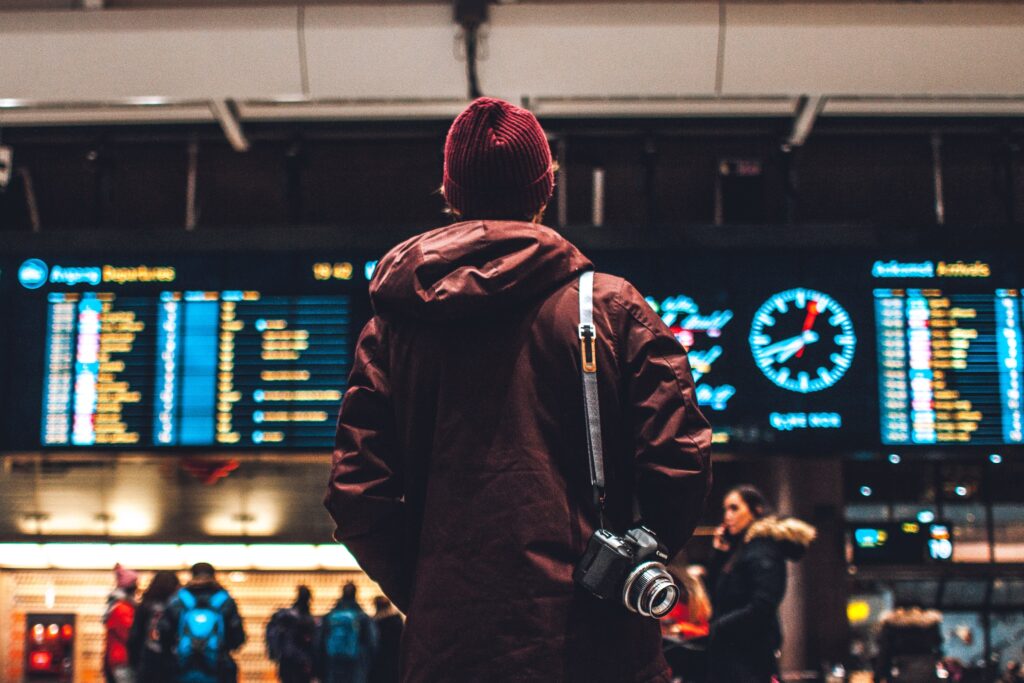
Kushiriki Data na Chaguo za Tiketi Zilizoboreshwa
Ushirikiano wa data ya trafiki na usafiri katika wakati halisi kati ya waendeshaji wa reli huongeza uzoefu wa usafiri. Kanuni hizo mpya zinalenga kukuza ushindani mkubwa miongoni mwa waendeshaji reli. Wanafanya hivyo kwa kuhimiza kubadilishana habari kuhusu ratiba za treni, viwango vya ukaaji, na ucheleweshaji. Aidha, wasafiri wanaweza kutarajia chaguzi za tikiti za kuvutia zaidi kutokana na ushindani huu ulioongezeka. Itawapa anuwai ya kina zaidi ya chaguo na kuongezeka kwa kubadilika wakati wa kupanga safari zao za treni.
Matokeo yake, ushirikiano mpya na mbinu za kushiriki data kati ya waendeshaji wa reli zinaweza kuleta athari ya mabadiliko chanya katika mfumo ikolojia wa usafiri.. Kama usafiri wa reli unakuwa rahisi zaidi na wenye matumizi mengi, inaweza kuhimiza watu wengi kuchagua treni badala ya njia zingine za usafiri, hatimaye kuchangia kupunguza msongamano wa magari, uzalishaji mdogo wa kaboni, na mustakabali endelevu zaidi wa usafiri.
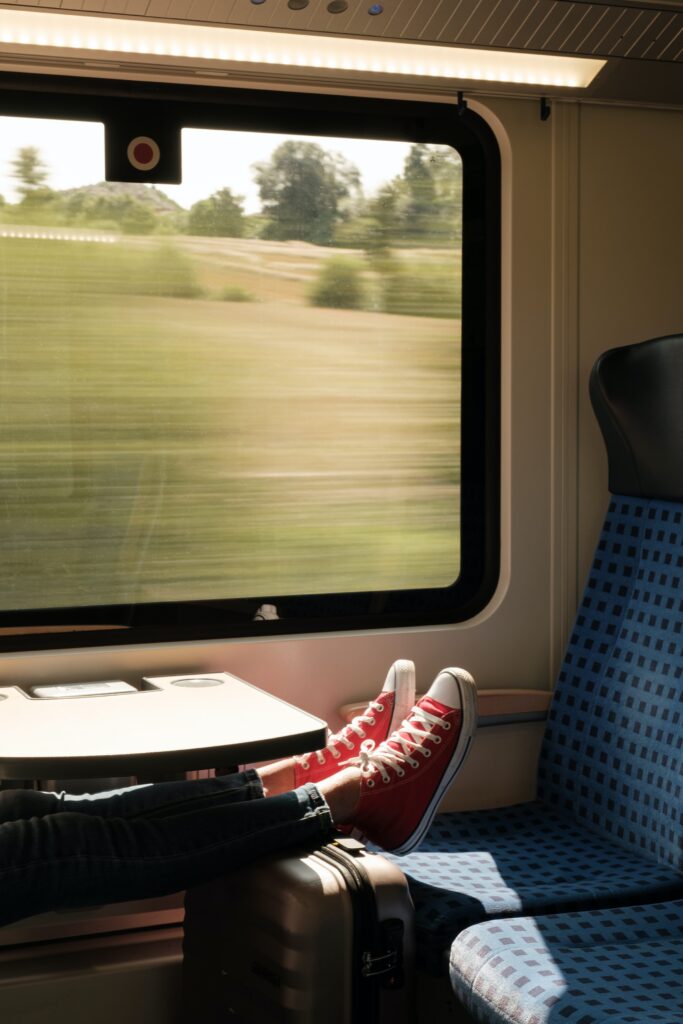
Ufikivu ulioboreshwa kwa Abiria wenye Uhamaji uliopunguzwa
Chini ya kanuni mpya za EU, makampuni ya reli lazima yape kipaumbele mahitaji ya abiria walio na uhamaji uliopunguzwa. Lazima wahakikishe safari zao zinasalia bila kukatizwa na bila usumbufu, hata wakati wa usumbufu. Hii inamaanisha kuwa watu wenye ulemavu au changamoto za uhamaji wanaweza kutarajia ufikivu na usaidizi ulioboreshwa wanaposafiri kwa treni. Kanuni hizi zinawapa uwezo abiria, kuwaruhusu kuanza safari zao kwa kujiamini na amani ya akili.
Kulingana na kanuni mpya za reli za EU, ikiwa abiria aliye na uhamaji mdogo anahitaji usaidizi, wanaweza kuomba kusafiri na masahaba pekee. Kwa kesi hii, mwandamani ana haki ya kupata tiketi ya bure na kiti karibu na mtu ambaye ni kusaidia. Maombi kwa usaidizi chini ya sheria mpya zinakubaliwa hadi 24 masaa kabla ya kuondoka. Hii ni faida bora kwa tasnia ya treni kwa sababu kampuni za mabasi zinahitaji arifa kabla ya hapo 36 masaa mapema, wakati wabebaji wa hewa na maji wanahitaji 48 masaa mapema.
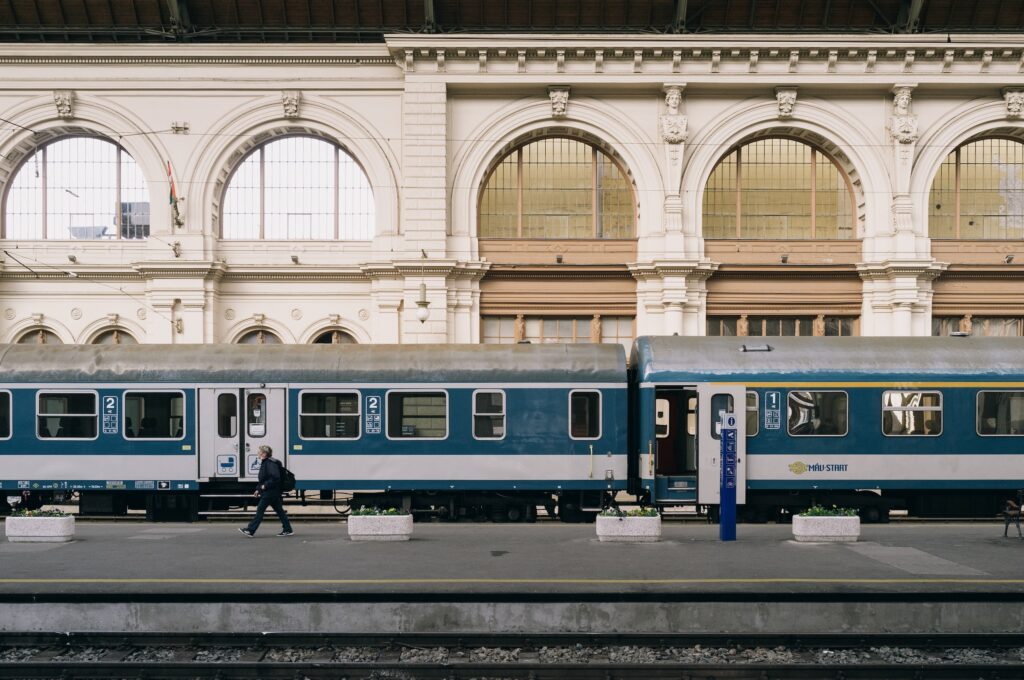
Uendelevu na faraja
Kujitolea kwa EU kwa uendelevu ni dhahiri katika kanuni mpya za reli. EU inakuza usafiri wa reli kama njia mbadala ya kijani kibichi, ikilenga kupunguza utoaji wa hewa ukaa na kuchangia katika mustakabali wa kijani kibichi. Pamoja na kanuni hizi, EU inahimiza abiria chagua treni kuliko njia zingine za usafirishaji. Hii inakuza tabia endelevu za kusafiri na kuunga mkono juhudi za uhifadhi wa mazingira.
Zaidi ya hayo, wapenda baiskeli pia walipata faraja na usaidizi mkubwa. Habari za kufurahisha ni kwamba treni mpya na mabehewa yaliyoboreshwa yatajumuisha nafasi maalum za baiskeli. Nafasi hizi ni za lazima, maana ni lazima zipatikane. Kwa hiyo, kama wewe ni mpenzi wa baiskeli, maeneo haya maalum yaliyotengwa yatafanya usafiri wako wa treni kuwa rafiki zaidi wa baiskeli.
Hitimisho katika Udhibiti Mpya wa Reli wa EU
Kwa kweli, kutekeleza kanuni mpya za reli za Umoja wa Ulaya kunaashiria kuboresha usafiri wa reli kwa abiria katika bara zima. Inaonyesha kutambuliwa kwa reli’ jukumu muhimu katika kuunganisha jamii, kutangaza utalii, na kukuza ukuaji wa uchumi. Juhudi za Umoja wa Ulaya katika kuimarisha haki za abiria na kuhakikisha hali bora ya usafiri zinaonyesha kujitolea kwao kuunda mtandao wa reli unaotegemewa na unaozingatia wateja..
Hitimisho, kanuni mpya za Umoja wa Ulaya za usafiri wa reli zinaashiria hatua kubwa mbele katika kutanguliza ulinzi wa abiria na kuboresha tajriba ya usafiri. Kanuni hizi zinalenga kufanya usafiri wa treni kuwa rahisi zaidi, ufanisi, na kufurahisha kwa wote. Zinajumuisha ufikivu ulioboreshwa kwa abiria walio na uhamaji uliopunguzwa. Mabadiliko mengine chanya ni kuanzishwa kwa kujipanga upya. Zaidi ya hayo, kuongezeka kwa ushindani kati ya waendeshaji wa reli kutanufaisha wasafiri. Pamoja na hatua hizi za maendeleo, abiria wanaweza kuanza safari zao za treni kwa ujasiri. Haki zao zinalindwa, na uzoefu wao wa kusafiri ni kipaumbele. Ahadi ya EU katika kuinua ubora wa usafiri wa reli inaonyesha maono yake ya mustakabali endelevu na unaozingatia abiria.. Wote ndani kwa laini zaidi, uzoefu wa kupendeza zaidi wa usafiri wa reli!
Safari nzuri ya treni huanza kwa kutafuta tikiti bora kwenye njia nzuri na ya starehe ya treni. Sisi katika Okoa Treni itafurahi kukusaidia kujiandaa kwa safari ya gari moshi na kupata tikiti bora za treni kwa bei nzuri.
Je, unataka kupachika chapisho letu la blogu "Jinsi ya Kujitayarisha kwa Safari ya Treni" kwenye tovuti yako? Unaweza ama kuchukua picha wetu na maandishi na kutoa mikopo na kiungo kwa post hii blog. Au bonyeza hapa: https://iframely.com/embed/https%3A%2F%2Fwww.saveatrain.com%2Fblog%2Fsw%2Fnew-european-rail-regulation%2F - (Nenda chini kidogo kuona Embed Code)
- Kama unataka kuwa na aina watumiaji yako, unaweza kuwaongoza moja kwa moja kwenye kurasa zetu za utafutaji. Katika link hii, utapata njia zetu maarufu za treni - https://www.saveatrain.com/routes_sitemap.xml.
- Ndani una viungo yetu kwa kurasa za kutua English, lakini sisi pia kuwa https://www.saveatrain.com/pl_routes_sitemap.xml, na unaweza kubadilisha / pl kwa / fr au / de na lugha zaidi.

